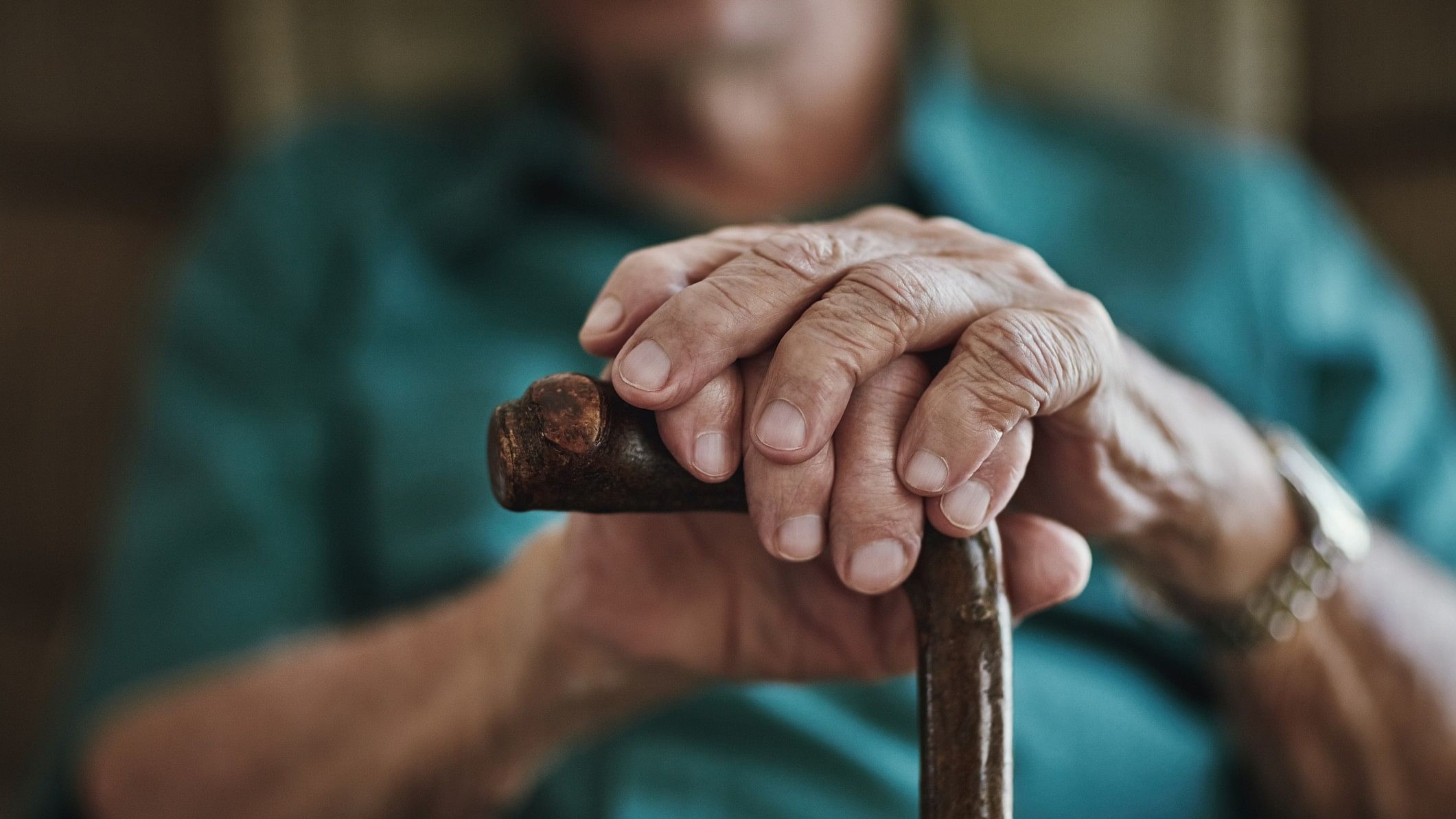
Representative image of a senior citizen.
Credit: iStock Photo
Pension-related concerns, information about social welfare schemes and assistance in finding daycare centres and doctors were among the top queries raised by senior citizens on the government helpline ‘Elderline’ this year, according to official data.
According to the data, 87, 218 calls were received on the helpline’s toll-free number 14567.
Elderline is an initiative of the Ministry of Social Justice and Empowerment to support distressed senior citizens across the country in collaboration with its NGO partners.
The helpline, currently running and active in 31 states and Union Territories, received calls about multiple issues, including distress calls related to pension-related problems and to get information regarding social welfare schemes, daycare centres, hospitals and doctors, the data stated.
HelpAge India, one of the NGOs that helps the ministry run the helpline in eight states of Delhi, Madhya Pradesh, Puducherry, Punjab, Andhra Pradesh, Gujarat, and the Union territories of Jammu & Kashmir and Ladakh, said from January 2023 until September 2023, it received a total of 13,086 calls, which is about 25 per cent of the total calls the national helpline received.
In about 21 per cent of the calls, senior citizens sought information about old age homes, daycare centres, hospitals, doctors and daycare givers, the data stated.
Meanwhile, 33 per cent of calls sought guidance regarding legal issues, social security, pensions and the Maintenance Act, it said.
Over 41 per cent of calls categorised under ‘Others' sought support for assistive devices, medicine, and small household works and asked for resolution of disputes with the neighbours, said HelpAge India’s Mission Head-Agecare Dr Imtiaz Ahmed.
About four per cent of calls were related to issues concerning elder abuse, etc. While 73 per cent of the callers were men, 27 per cent were women, he added.
“If we further bifurcate the services for which the calls have been received since the beginning of this year, 23 per cent are specific about pension, 14 per cent are enquiring about old age homes and doctors, and 41 per cent are seeking information about voluntary services like if someone can help them with small household work, buying medicines and other stuff from the market among others,” he said.
This indicates that the majority of senior citizens, or a great chunk, are living a life of loneliness and they do not have any support from their children or relatives who can help them with small tasks and support systems, Ahmed said.
The social support from home for them has crumbled and they are forced to seek help from a helpline, he said.
“During last year, from January 2022 until December 2022, we got a staggering figure of 42.5 per cent of calls related to pension issues,” he said.
“Most of the calls were from Delhi, with senior citizens complaining about non-payment, inability to access officials who disburse pensions, or a huge backlog of months due to procedural delays. This year, the pension-related calls have drastically come down to 23 per cent,” the NGO said.
The helpline run by Elderly NGO Agewell since 1999 also presented healthcare as one of the top concerns of the elderly.
Himanshu Rath, founder and chairman at Agewell Foundation, said the Agewell helpline number varies from state to state and about 71 per cent of senior citizens raise issues of suffering from health-related problems like arthritis, weak eyesight, diabetes, and bone fracture among others.
About 65 per cent of senior citizens are facing financial problems due to limited income, increased financial needs in old age, dependent younger family members, etc while 63 per cent elderly are facing social problems like age and gender discrimination, social exclusion, loneliness, marginalisation and isolation, he said.
During the interactions, it was also observed that more than 45 per cent of senior citizens claimed that their family members do not care for their needs and interests, Rath said.
According to a recent UNFPA report, the elderly population in India is expanding at an unprecedented rate and could surpass the children's population by mid-century.
At the national level, the share of the elderly (60+ years) population is projected to increase from 10.1 per cent in 2021 to 15 per cent in 2036 to 20.8 per cent in 2050, according to the UNFPA's 'India Ageing Report 2023'.